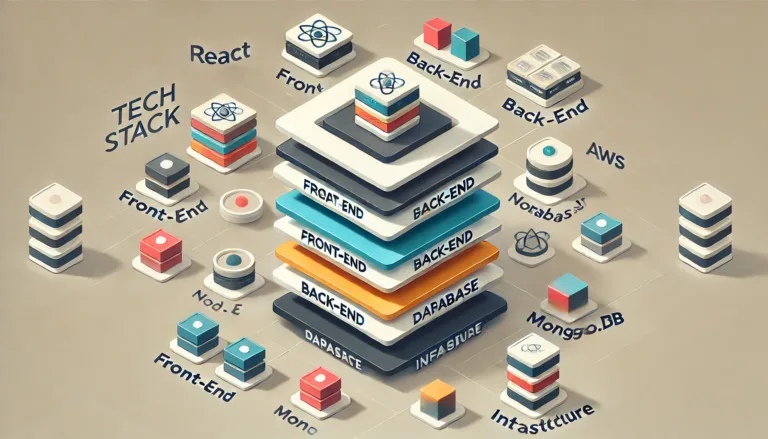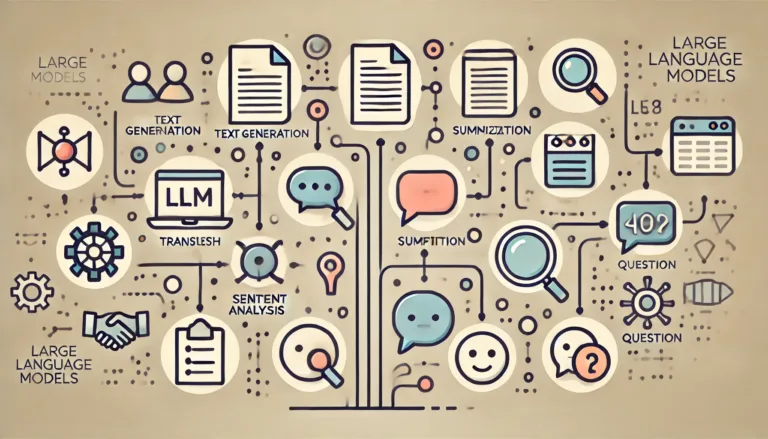AI in Java: What You Need to Know
Getting into artificial intelligence (AI) using Java? Buckle up—it’s going to be a fun, wild ride. Let’s break it down for you.
Python vs. Java for AI
Sure, Python is like the shiny new toy that everybody’s talking about—it’s easy to use and loaded with features. But hold up, Java’s got some serious game too. Java is all about being structured and scalable (LITSLINK).
| Feature | Python | Java |
|---|---|---|
| Syntax | Easy-peasy | More rigid, but solid |
| Libraries | Tons of ’em | Well-established ones |
| Prototyping | Quick and dirty | Built to last |
| Performance | Good enough | Speed demon for big stuff |
Python is great when you wanna whip up something quick. But if you’re thinking big—big data, big applications—Java’s your go-to. It’s all about structure and speed. Java’s object-oriented nature and “write once, run anywhere” capability make it perfect for rock-solid, scalable AI systems. Want more on Python for AI? Check out our article here.
Java Libraries for Machine Learning
Java’s got a treasure trove of libraries for machine learning. These aren’t just any libraries—they’re power tools for deep learning, crunching data, and more (Onix Systems).
Here are some must-know Java libraries for machine learning:
- Weka: Master of all trades—data cleanup, classification, you name it.
- JavaNNS: Good old neural network simulations.
- JOONE (Java Object Oriented Neural Engine): Build-your-own neural networks. Flexible, and awesome.
- Deeplearning4j: The big dog for deep learning, even with heavy-duty computing.
- MOA (Massive Online Analysis): Data streaming—think real-time magic.
Java’s flexibility means you can use it for anything—text analysis, image recognition, detecting oddballs, making recommendations—you name it. Here’s a quick look:
| Library Name | Specialty |
|---|---|
| Weka | General ML tasks |
| JavaNNS | Neural networks |
| JOONE | Neural networks |
| Deeplearning4j | Deep learning |
| MOA | Real-time data streams |
Digging into these libraries can turbocharge your AI projects. Take a closer look and find what fits your style. Start your AI journey with Java and see where it takes you.
If you’re serious about becoming an AI wizard in Java, consider getting certified. Check out some AI certification programs to level up your game.
Why Java Rocks for AI
Hey there! If you’re diving into the fascinating world of AI, let me tell you why Java should be your sidekick. Java isn’t just another language; it’s a powerhouse when it comes to performance, scalability, and security. So, buckle up and let’s explore why Java is a top pick for AI projects!
Speed and Growth
Java’s blazing speed and ability to handle massive growth make it a champ for AI. Need to juggle huge datasets or massive machine learning tasks? Java’s got your back. It’s a go-to in big business for mind-bending problems like:
- Catching fraudsters
- Sorting out customer groups
- Predicting market demands
Here’s a quick comparison to see how Java stacks up against other languages:
| Language | Growth Potential | Speed |
|---|---|---|
| Java | Sky-high | Lightning-fast |
| Python | Good | Decent |
| R | Meh | Sluggish |
Java’s cross-platform nature, design focused on objects, and rock-solid libraries make scaling up a breeze. Plus, with a huge community of developers, you won’t be left out in the cold when you hit a snag (Onix Systems).
Locking It Down with Security
AI plays with some pretty personal info, and keeping that safe is a must. Java’s security chops make sure your data stays under lock and key. Here are some of its heavy-hitting features:
- Bytecode verification: Keeps nasty code at bay.
- Security manager: Sets security rules for all Java apps.
- JAAS (Java Authentication and Authorization Service): Standard APIs to verify users and set permissions.
With these in place, Java’s a top pick for keeping data safe from prying eyes (Aegis Softtech).
Why Java?
Getting into AI with Java means tapping into stellar performance, scaling to any size, and keeping things locked tight. Dive deeper into AI with Java and you’ll see why it’s a fantastic choice for building smart, secure solutions.
Curious to know more? Check out our articles on AI programming and AI certification programs for more insights.
Ready to rock your AI project with Java? Let’s keep exploring all the epic things we can do with it.
Jumping into AI with Java
Hey there, eager coder! Ready to bring AI magic to your Java projects? Let’s break it down and get you rolling from picking the right AI technique to deploying killer models. No fluff, just the good stuff.
Picking Your AI Game Plan
You gotta start with knowing what you’re up against. What problem are you solving? What kind of data do you have? Is it labeled or not? Nail these basics, and you’re halfway there:
- What’s the Issue?: Be crystal clear about the problem you’re tackling.
- Data Deets: Know your data inside out—size, type, structure.
- Learning Stuff: Decide if you need supervised learning (with labeled data) or unsupervised learning (no labels).
Dive into Java AI Libraries
Java’s got some pretty sweet libraries to make your AI dreams come true. Your choice depends on the AI technique you’re using and how complicated your project is. Check out these popular picks:
- Weka: Great for data mining and machine learning. Tools for data prep, classification, regression, clustering, and even some fancy visualization.
- Deeplearning4j: An open-source, distributed deep-learning library for Java and Scala junkies.
- TensorFlow for Java: Rock-solid for heavy numerical computations. Handles deep learning, and more.
| Library | Best For | Community Support |
|---|---|---|
| Weka | Data mining, ML | High |
| Deeplearning4j | Deep learning, distributed AI | Medium |
| TensorFlow Java | Complex numerical tasks | High |
For more on Java libraries, check out our deep dive into artificial intelligence programming.
Rolling Out Your AI Models
Deploying AI models isn’t just plugging them in and hoping for the best. It’s about making them work in the real world. Here’s the deal:
- Keep an Eye on Things: Regularly monitor your models to ensure they’re performing well.
- Tweak and Tune: Keep adjusting your models for better accuracy and efficiency.
- Bias Patrol: Look out for and correct any biases sneakily slipping into your models.
You can serialize your models to use offline or set them up as web services for online use. Always include proper version control and automate retraining to keep things current. For more on deployment, visit our section on AI software development.
Follow these steps and you’ll be AI-shining in no time. Whether you’re rocking Weka, Deeplearning4j, or TensorFlow, choosing the right tools can make all the difference. Dive deeper into AI in software development with our articles on AI coding languages and machine learning basics.
Now, let’s go make some AI magic!
Java for Machine Learning
Java’s Role in AI Projects
Building AI projects? Java’s got you! It handles complex data structures and algorithms with ease, boasts strong performance, and is super flexible (Aegis Softtech). When I first started with AI, Java quickly became my go-to because of its readability and the extensive support from the community.
Java isn’t just about AI programming (artificial intelligence programming). It’s also great for machine learning, neural networks, search algorithms, and genetic programming (Bayram Blog). If you’re new to this, mastering Java basics and diving into AI libraries can lead to all sorts of innovative projects.
Java AI Libraries Overview
Java’s treasure trove of libraries makes it easier to tackle AI. From simple machine learning tasks to intricate deep learning projects, here’s a look at some top Java AI libraries:
| Library | What It Does |
|---|---|
| Deeplearning4j | Deep Learning |
| Weka | Machine Learning |
| Apache Mahout | Machine Learning and Recommendations |
| Encog | Neural Networks |
| Apache OpenNLP | Natural Language Processing |
| Neuroph | Neural Networks |
| Jenetics | Genetic Algorithms |
- Deeplearning4j: Perfect for deep learning, and it plays nice with big data tools.
- Weka: Offers machine learning algorithms for data mining—think pre-processing, classification, regression, clustering, etc.
- Apache Mahout: Great for machine learning tasks like classification, clustering, and recommending things.
- Encog: Supports various neural networks—ideal for building predictive models.
- Apache OpenNLP: Toolkit for processing natural language text using machine learning.
- Neuroph: Open-source framework that simplifies creating and training neural networks.
- Jenetics: Genetic algorithm library for optimization and advanced scheduling.
You can dig into more details and specific use cases on our machine learning basics page.
Future Trends in AI with Java
Java and AI are set for some exciting times. Keep an eye on these trends:
- Automated Machine Learning (AutoML): Makes it easier to create machine learning models without needing to be an algorithm wizard.
- Explainable AI (XAI): A push to make AI’s decisions more transparent and understandable.
- Cloud-based AI Solutions: Integrating AI with cloud services for better scalability and hassle-free maintenance. No more worrying about local resource limits!
Staying ahead in AI means keeping up with these trends and leveraging Java’s strengths. Check out our sections on AI algorithms, AI certification programs, and future trends in AI software development to stay plugged into the latest in AI and Java.









